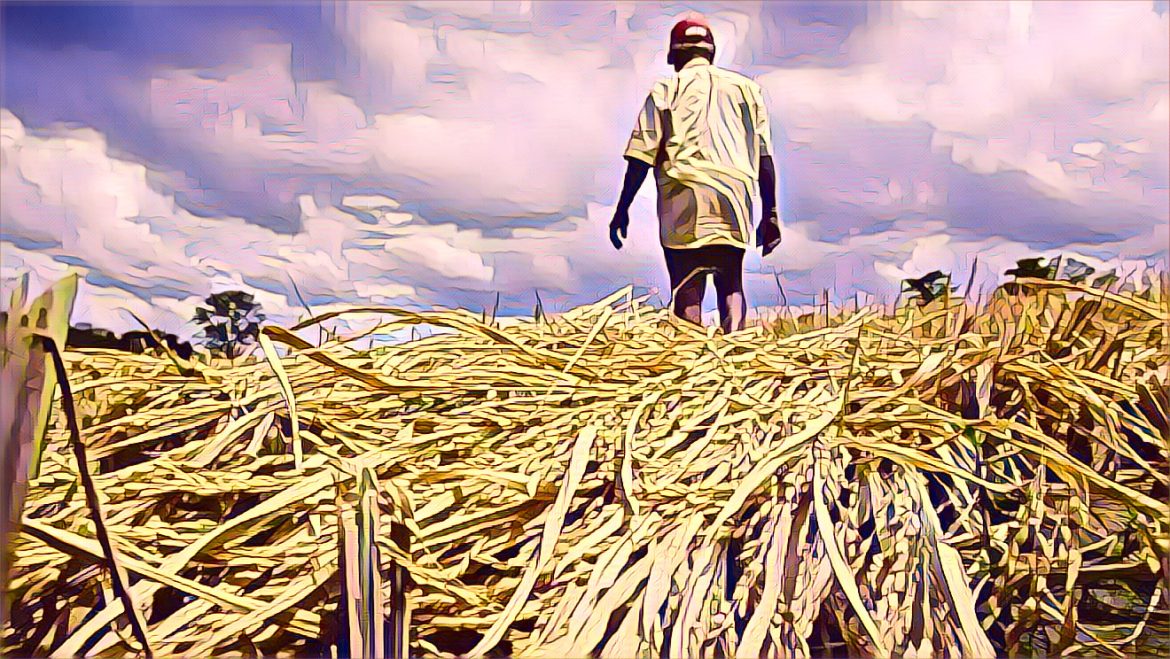Zimbabwe is grappling with a devastating drought that has left many families without food and desperate for survival. Villagers in Buhera District and other rural areas are particularly hard-hit, struggling to secure even a single meal each day.
Local leaders have painted a grim picture of the current situation. Ward 13 Councilor Fanuel Chingombe highlighted the severity, explaining that the drought has not only decimated crops but also led to the loss of livestock, a critical source of sustenance and income for many households. “The situation is dire. Most of us have no food in our homes,” Chingombe said.
This crisis comes on the heels of prolonged dry spells that have made farming nearly impossible. With rivers drying up and dams at critically low levels, water scarcity exacerbates the dire conditions. Residents are now forced to rely on food aid and remittances from relatives abroad.
Efforts by the government and humanitarian organizations to provide relief are underway, but the demand far outweighs the supply. The World Food Programme (WFP) has stepped in, distributing food packages to the most affected families. However, the scale of the disaster means that many still go without.
In a village in Buhera, Nyashadzashe Ncube, a father of five, expressed his worries. “We have to make tough choices daily. Sometimes, we skip meals so that the little food we have can last longer,” he said. Such stories are commonplace, reflecting a broader struggle across the nation.
The drought has also impacted education. Many children are dropping out of school to help their families search for food or to take up small jobs to contribute to household incomes. The future of these children hangs in the balance as their education takes a backseat to the immediate need for survival.
Amid this crisis, there’s a glimmer of hope. Various non-governmental organizations (NGOs) are mobilizing resources to provide both immediate relief and long-term solutions. Initiatives include drilling boreholes to improve water access, introducing drought-resistant crop varieties, and offering training on sustainable farming practices.
Agricultural experts stress the importance of adopting climate-resilient farming techniques. Dr. Patience Nyathi, an agronomist, emphasized, “We need to rethink our approach to farming. Embracing technologies that conserve water and improve soil health can help us mitigate the impacts of future droughts.”
Community resilience and adaptability are also being tested. Local women’s groups are coming together to support one another, sharing whatever little resources they have. These grassroots efforts are crucial in sustaining hope and providing a sense of solidarity amidst the crisis.
The Zimbabwean government has pledged to enhance its support for affected communities. Initiatives are being planned to bolster food security through strategic reserves and improve irrigation infrastructure. While these measures are steps in the right direction, their success will depend on effective implementation and sustained commitment.
Despite the challenges, the spirit of the Zimbabwean people remains unbroken. There is a shared belief that with collective effort and support, the country can overcome this crisis. As the nation rallies to address the immediate needs, there is also a renewed focus on building a more resilient future.
Source: New Zimbabwe


